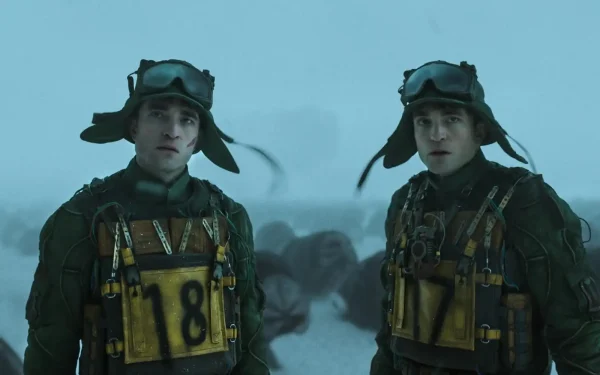“Doctor Who” promises a darker, smarter season
BBC’s “Doctor Who” is television’s longest-running science fiction show, a feat accomplished due to a concept known as a “regeneration.” During a regeneration, the Doctor, an alien known as a “Time Lord,” completely changes his face and personality, meaning a new actor takes on the iconic role after each regeneration. This has always been risky for the show, considering its enormous international fan base who have become fervently attached to a certain actor in the role. Despite this, the show’s current regeneration feels smart and inventive with ideas that have been far more enthralling than previous seasons.
In its eighth season, Peter Capaldi stepped into the role of the Doctor while Jenna Coleman continued her tenure as the Doctor’s companion Clara. Capaldi’s Doctor is noticeably more confused, angry and unpredictable than previous incarnations, creating tensions within the TARDIS for him and his companion and a surprisingly dark direction to take the character.
The season’s opener, entitled “Deep Breath,” kicks off with a glitchy TARDIS being spit from the throat of a Tyrannosaurus Rex, which is eventually let loose in 19th century London. It’s an undeniably exciting episode to start the season off with—it’s filled with big action scenes and smart writing that helps the audience acclimate themselves to the new Doctor—but it’s not exactly representative of what the season will become.
The show, which is still filled with the type of frenetic energy and humor that’s defined in earlier seasons, has become increasingly contemplative, with many episodes examining the Doctor and Clara’s morality as they travel across space and time. In the season’s second episode, the Doctor asks, “Am I a good man?” The question is left mostly unanswered, but does, at the same time, quickly reveal itself to be one of the season’s most central ideas.
Throughout its run, “Doctor Who” has received criticism for its portrayal of its female characters, especially the Doctor’s companions. The show seems to be intent on silencing those criticisms this season. In “Kill the Moon,” the season’s seventh episode, the Doctor and Clara as well as Lundvik, an astronaut (Hermione Norris), and Courtney, one of Clara’s students (Ellis George), become trapped on a space shuttle armed with nuclear explosives in the year 2049 as the moon begins to crumble under their feet. They quickly learn that the planet is, in fact, a massive egg about to hatch an unknown and potentially dangerous creature.
The Doctor, realizing the choice they will have to make, quickly abandons the rest of the group, leaving them to decide whether or not to destroy the egg. While it would be easy to commend executive producer Steven Moffat for simply allowing the episode to pass the Bechdel Test, a criteria that a work of fiction only passes if it features two or more female characters talking to each other about something other than a man, “Kill the Moon” surpasses this. It goes further than giving Clara something to do other than be saved by the Doctor. It makes her central to the episode, keeping her front and center as the Doctor is nowhere to be found. The entire episode depends on her and the decisions she makes. The show seems to finally be realizing that a companion is often as essential to “Doctor Who” as the Doctor himself.
“Doctor Who” is, at its core, a children’s show. Its premise is inherently ridiculous and it often plays up its campiest aspects in order to be frightening, but not terrifying, to its target demographic. Because of this, the newest season of the show is arguably its best and most exciting since its 2005 reboot. In its eighth season, the show has begun examining fear, power and humanity with a depth and complexity that feels both thrillingly mature and refreshingly open-minded.

Michael Wu is a senior at William Fremd High School and an avid reader, writer, and fan of all things art and entertainment. Michael has been an A&E...




